Movie Review – Vice
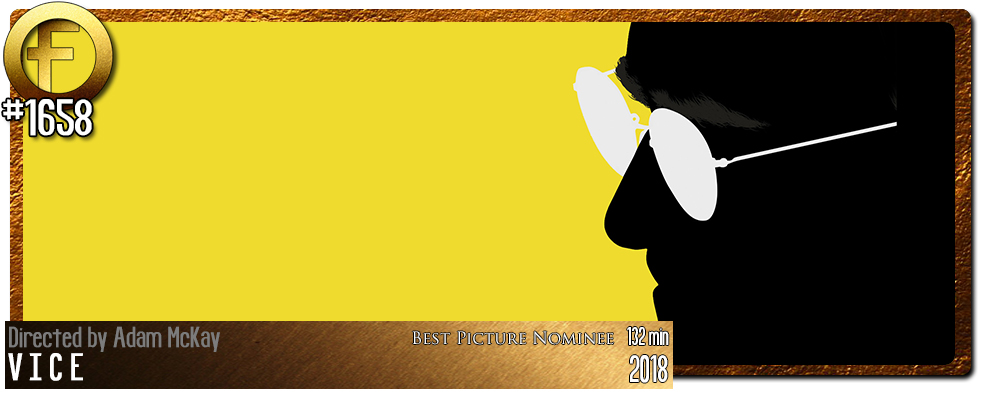
Principal Cast : Christian Bale, Amy Adams, Steve Carell, Sam Rockwell, Alison Pill, Lily Rabe, Jesse Plemons, Tyler Perry, Justin Kirk, LisaGary Hamilton, Eddie Marsha, Bill Camp, Don McManus, Stephen Aldy Guirgis, Matthew Jacobs, Adam Bartley, Kirk Bovill, Jillian Armenante, Fay masterson, Shea Wigham, Alfred Molina, Naomi Watts, Joseph Beck.
Synopsis: The story of Dick Cheney, an unassuming bureaucratic Washington insider, who quietly wielded immense power as Vice President to George W. Bush, reshaping the country and the globe in ways that we still feel today.
********
Until quite recently, the Bush/Cheney Administration always felt to me to be representative of the very worst of American politics. Bush, particularly, was portrayed as an imbecile by the media, while Dick Cheney always stuck me as something of a fox in the henhouse, patiently waiting in the wings as quietly assuming a level of power an American Vice President should never wield. The events of September 11, 2001 crystallise the story director Adam McKay wants to tell about Cheney, portraying the man as a wily, conniving power player in American history, in a film that feels more like a hatchet job than an honest biopic effort; one can only imagine how Dick Cheney himself might feel about the finished film, depicting a variety of historical figures (including Steve Carell’s Donald Rumsfeld) in a pallid, cold light.
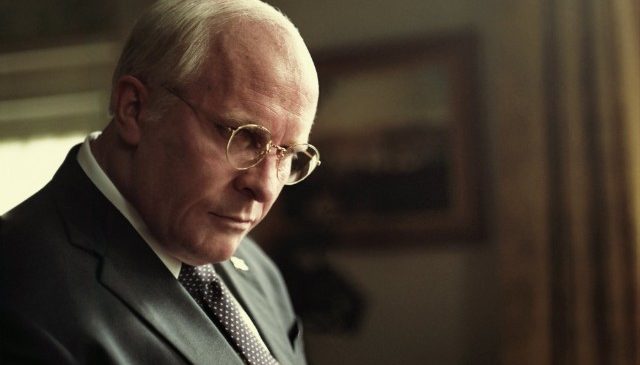
In the 1970’s and 80’s, an up-and-coming White House intern, Dick Cheney (Bale) works his way up through the echelons of power to eventually become Vice President of the United States, alongside President George W Bush (Sam Rockwell), and two-time Secretary of Defence Donald Rumsfeld (Steve Carell). Cheney’s wife, Lynne (Amy Adams) also wields power over her husband as he quietly assumes influence within Washington. Through the course of his story, we encounter Bush, future Chief Justice Antonin Scalia (Matthew Jacobs), President Gerald Ford (Bill Camp), Colin Powell (Tyler Perry) and Condazleezza Rice (LisaGay Hamilton) and Paul Wolfowitz (Eddie Marsan), all polarising figures in their own way from this fascinating period of American history.
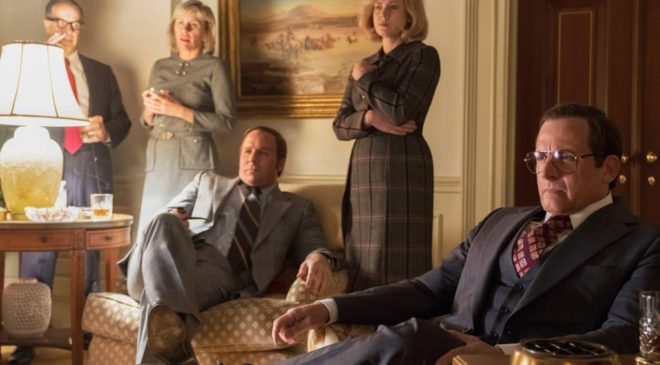
The people in Vice are awful. Arrogant, power-hungry, narcissistic and morally hollow, McKay’s film depicts the historical characters around Dick Cheney as pigs feeding at a trough, while Cheney himself as the veritable waiting fox looking to take his opportunity when the time is right. It’s perhaps apropos that a man of Cheney’s viperous nature be saddled with a heart condition – given how heartless the man himself is portrayed here – and there’s a sense of Machiavelli to Vice that feels less like an honest attempt to bring the secretive’s former Vice President’s life to the screen than it does a damning indictment on Washington backroom dealings.
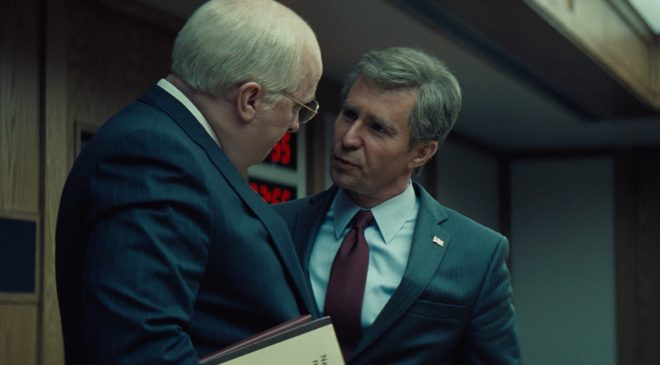
The film’s tone is prosaic, narrated in genteel, melancholy form by fictional veteran Kurt (Jesse Plemons), which imbues the sentimentality of Vice with a darker-stained patriotism than we’re used to, a taciturn bleakness hidden beneath a veneer of platitudes. Christian Bale personifies the no-nonsense Cheney with a palpable tangibility, bringing humanity to a man whose legacy and influence can still be felt even today, some years after his term as VP came to an end. Bale is hypnotic as Cheney, aided by excellent makeup effects and McKay’s volatile screenplay, while co-star Amy Adams gives rock solid support as Dick’s stoic, driven wife Lynne, providing great contrast to their differing personalities. McKay gives the film plenty of humour – there’s a credit sequence mid-film that had me guffawing, while Cheney’s monotone acceptance of each of his subsequent heart attacks made me laugh out loud – and a dark inevitability about Dick’s rise to the top that engenders that feeling of watching a car-crash in slow motion, but McKay holds himself at a distance to a degree, letting the characters on the screen and page deliver the fatal blows to their public perceptions themselves. Vice is a dichotomy of wanton excess and riven influence.
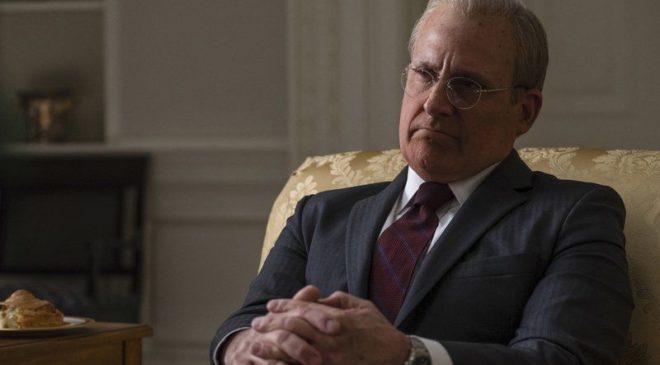
One suspects Vice is Adam McKay’s JFK, his American Political Masterpiece, in much the same way his The Big Short did its best to elucidate the nation’s banking system in the face of the Global Financial Crisis; the film is operatic with its ensemble, cavalier with facts and the fictionalising of real events, slanted as a damning indictment on the underhanded machinations of Cheney’s influence during W’s administration, with the confluence of his influence turning a corner on the day of 9/11. The film supports a supposition that Cheney took charge beyond his moral bounds following the attack on America, his ear-whispering and scurrilous personality-wrangling ensuring his mini-coup occurred without incident. Suffice to say, McKay’s motive for Vice certainly isn’t to build a carefully bipartisan depiction of a man few people really know, but to open a wound for countless thousands globally as the seeds of post-millennial America’s corpulence and fall, sewn through the enactment of Cheney’s pet “Unitary Executive Power” theory, a theory approaching outright dictatorship, if you follow McKay’s thinking.
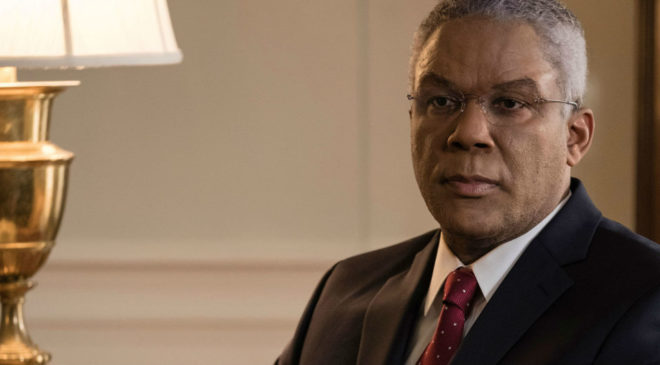
Republican voters will likely look at Vice and wonder how all these people got away with it, and how they can get away with it too. Democratic voters will be suitably aghast at the ease with which Cheney plays his long game – to invade Iraq – and the chess-board movements of established players, while obviously well known to historians, feels surprisingly new to those outside America who aren’t hip-deep in this miasma. The overall feeling of Vice is that it’s a partisan tirade against corruption and the weakness of the American political structure whereby a country can declare war unprovoked (and using demonstrably false intelligence) against a sovereign nation and plunge the globe into a conflict that still wears on, despite W’s inept “Mission Accomplished” flyby. It’s a solid film, well made and obviously intended to ruffle feathers. It does that, as a performance-led withering diatribe against Cheney’s macabre fascination with burning the world down; his name is reviled in many circles today, a polarising figure of American imperialism and, if you ask me, a man who needs to be brought to account for the crimes he has committed against humanity in the name of his country.

